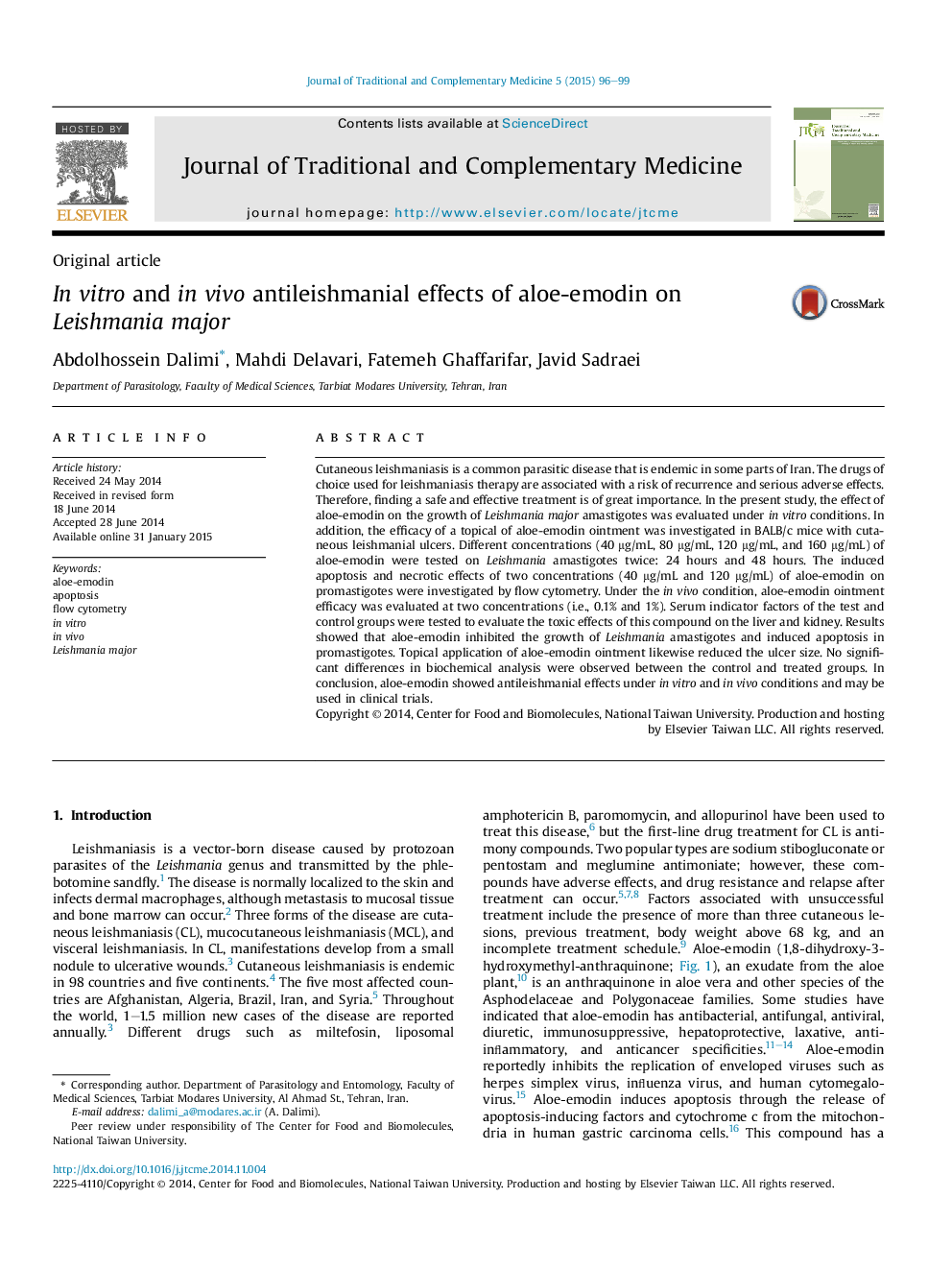| Article ID | Journal | Published Year | Pages | File Type |
|---|---|---|---|---|
| 3099818 | Journal of Traditional and Complementary Medicine | 2015 | 4 Pages |
Cutaneous leishmaniasis is a common parasitic disease that is endemic in some parts of Iran. The drugs of choice used for leishmaniasis therapy are associated with a risk of recurrence and serious adverse effects. Therefore, finding a safe and effective treatment is of great importance. In the present study, the effect of aloe-emodin on the growth of Leishmania major amastigotes was evaluated under in vitro conditions. In addition, the efficacy of a topical of aloe-emodin ointment was investigated in BALB/c mice with cutaneous leishmanial ulcers. Different concentrations (40 μg/mL, 80 μg/mL, 120 μg/mL, and 160 μg/mL) of aloe-emodin were tested on Leishmania amastigotes twice: 24 hours and 48 hours. The induced apoptosis and necrotic effects of two concentrations (40 μg/mL and 120 μg/mL) of aloe-emodin on promastigotes were investigated by flow cytometry. Under the in vivo condition, aloe-emodin ointment efficacy was evaluated at two concentrations (i.e., 0.1% and 1%). Serum indicator factors of the test and control groups were tested to evaluate the toxic effects of this compound on the liver and kidney. Results showed that aloe-emodin inhibited the growth of Leishmania amastigotes and induced apoptosis in promastigotes. Topical application of aloe-emodin ointment likewise reduced the ulcer size. No significant differences in biochemical analysis were observed between the control and treated groups. In conclusion, aloe-emodin showed antileishmanial effects under in vitro and in vivo conditions and may be used in clinical trials.
